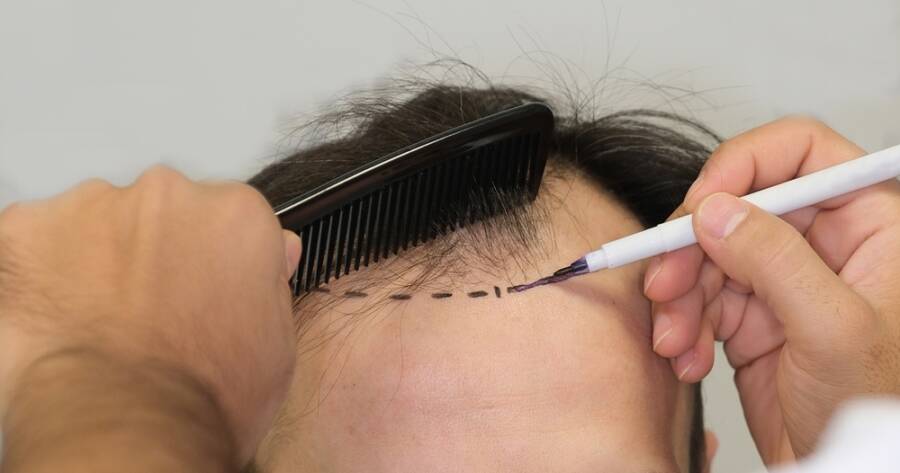Finding the right hair transplant clinic locally may offer convenience and access to post-procedure care, all crucial for a successful outcome. But, with many options available, making an informed choice requires careful consideration and research. Local clinics boast advantages that can include personalized service and community trust. This exploration delves into how to identify and assess local hair transplant facilities, potentially setting you on the path to effective and satisfying hair restoration.
Why Choose Local Clinics?
Opting for a local hair transplant clinic holds numerous potential benefits, especially regarding accessibility and follow-up. A nearby clinic makes it easier to attend initial consultations, where you can discuss your goals and understand the available options. Proximity also allows you to visit the clinic multiple times pre-and post-procedure, ensuring that you have comprehensive follow-up care. This can be crucial for monitoring healing and achieving desired results.
Additionally, local clinics often have a vested interest in maintaining community trust. They might be more inclined to deliver personalized service and satisfactory outcomes. Positive word-of-mouth in the community can be an indicator of a clinic’s quality. Locally-operated clinics may also better understand the regional variables that impact hair health, offering solutions tailored to your environment.
Researching Your Options
Before deciding on a clinic, thorough research helps ensure that you make an informed choice suited to your individual needs. Start by compiling a list of potential clinics in your area. Online databases and directories dedicated to hair restoration services can be useful in identifying these facilities. Reviews and ratings on platforms like Google or Yelp provide insights into patient satisfaction and clinic reputation. Pay attention to any patterns in feedback regarding outcomes and client service.
Visiting their websites should offer additional insights, such as available procedures, credentials, and outcomes. Look for clinics that openly share information about their practitioners, including qualifications and experience levels. Transparency in these areas often correlates with reliability and quality of care. Consider reaching out to clinics directly to ask questions and receive first-hand information.
Evaluating Clinic Expertise
Once you have narrowed down your choices, evaluating the expertise of potential clinics becomes your next step. Clinics with seasoned professionals often highlight their credentials and specializations. It’s beneficial to verify these qualifications through professional boards or associations, ensuring they are current and reputable. Understanding the techniques utilized, such as Follicular Unit Extraction (FUE) or Follicular Unit Transplantation (FUT), can also aid in your decision-making process.
Different techniques have varying recovery times and expected outcomes. Moreover, inquire about their success stories and view before-and-after photos of previous patients. This visual evidence can provide realistic expectations for your own results. Trustworthy clinics might also facilitate conversations with past clients, allowing you to gauge satisfaction and hear personal testimonies. This direct feedback can be invaluable in making your final decision.
Considering Costs and Financing
Hair transplant procedures can range in price, and understanding the financial implications is essential in planning your procedure. First, obtain detailed quotes from the clinics you are considering, ensuring they encompass all expected costs. Hidden fees can complicate budgeting, so verifying the inclusion of consultation fees, post-procedure medications, and follow-up appointments is important.
Understanding these costs might help prevent unforeseen expenses down the line. Financing options should also be part of your inquiry. Many clinics offer payment plans or work with financing companies to provide manageable payment options. Exploring these plans might allow you to afford the procedure without compromising your financial stability. It’s crucial to weigh the cost against the value of expertise and outcomes, as the cheapest option may not always be the best.
The Importance of an Initial Consultation
The initial consultation is a pivotal part of your journey, offering insight into the procedure and allowing you to assess the clinic’s compatibility with your aims. During the consultation, use the opportunity to discuss your concerns and aspirations with the practitioner. They should provide a thorough explanation of the procedure, potential results, and any associated risks. Pay attention to how your questions are answered; respectful and thorough responses are a positive indicator.
Personal rapport also matters, as comfort and trust are essential when making such personal decisions. A practitioner who listens and aligns with your goals can significantly impact your satisfaction with the process. Furthermore, the consultation allows you to observe the clinic environment, staff professionalism, and overall ambiance—all contributing to your ultimate decision.
Learn More About Local Options
Embarking on the journey to discover and choose a local hair transplant clinic involves careful consideration and planning. Opting for a nearby facility facilitates frequent consultations and personalized care, potentially enhancing your experience and results.
By researching options, evaluating expertise, and understanding financial aspects, you can navigate this process with confidence. A thorough consultation offers further assurance, aligning your expectations with clinic capabilities. As you explore local expertise, leveraging these strategies can empower you to make an informed decision, setting you on the path to successful hair restoration and renewed confidence.





